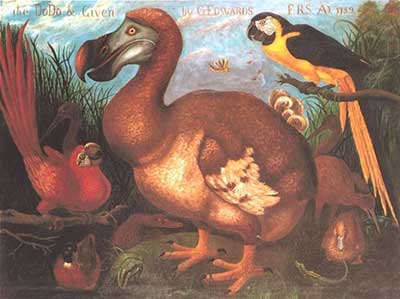Relevance: GS-3: Conservation, environmental pollution and degradation, environmental impact assessment.
Key Phrases: Sixth Mass Extinction, IUCN Red List, loss of invertebrates, Background Extinction rate, global biodiversity, preserving in wild.
Why in News?
- A study led by University of Hawaii has claimed that the Earth is witnessing the sixth mass extinction event. The research blames human activities for the rapid deterioration of the number of species in the planet.
Highlights:
- The peer-reviewed study, which has been published in Biological
Reviews, countered the views presented by some of the researches, who
point to the Red List by International Union for Conservation of
Nature or IUCN.
- As per IUCN, since 1500 CE, about 1.5 percent of evaluated mammal and bird species have gone extinct.
- The researchers, said that the current extinction has been going on since the 16th century. They said that Earth has lost 7.5 to 13 per cent of its two million species - 150,000 to 260,000 - since then.
- The head of the research, Robert Cowie, said that the Red List is biased, which leaves out most invertebrates - a group that has seen a dramatic loss and is the majority of biodiversity on Earth.
- With widespread degradation of highly biodiverse habitats such as coral reefs and rainforests, as well as other areas, the vast majority of these extinctions are thought to be undocumented, as the species are undiscovered at the time of their extinction, or no one has yet discovered their extinction.
- The current rate of extinction of species is estimated at 100 to 1,000 times higher than natural background extinction rates.
Background extinction rate or normal extinction rate, refers to the standard rate of extinction in Earth's geological and biological history before humans became a primary contributor to extinctions.
Keypoints:
- As per the study, ‘incorporating estimates of the true number of invertebrate extinctions leads to the conclusion that the rate vastly exceeds the background rate and that we may indeed be witnessing the start of the Sixth Mass Extinction.’
- It added that island species have suffered far greater rates than continental ones, and plants too have faced similar conservation biases as invertebrates.
- The researchers blamed the humans, saying the latest mass
extinction event is not a natural phenomenon.
- Humans are the only species able to manipulate the Earth on a grand scale, and they have allowed the current crisis to happen.
- The study called on the scientists to unite and do everything possible
to stop the extinction of species.
- “Denying the crisis, simply accepting it and doing nothing, or even embracing it for the ostensible benefit of humanity, are not appropriate options and pave the way for the Earth to continue on its sad trajectory towards a Sixth Mass Extinction.
- Researchers also note that we likely won't be able to save all the species currently going extinct, but if we act with care and urgency, we might at least manage to preserve most, and document them for future generations.
Way Forward:
- Dedicated conservation biologists and conservation agencies are doing what they can, focused mainly on threatened birds and mammals, among which some species may be saved from the extinction that would otherwise ensue.
- Perhaps, with efforts to publicize the crisis, biodiversity scientists may achieve some successes, such that a significant component of currently extant global biodiversity can be preserved in the wild, and many of those species that will be lost from the wild can at least be preserved in museums for future generations to study and marvel at.







